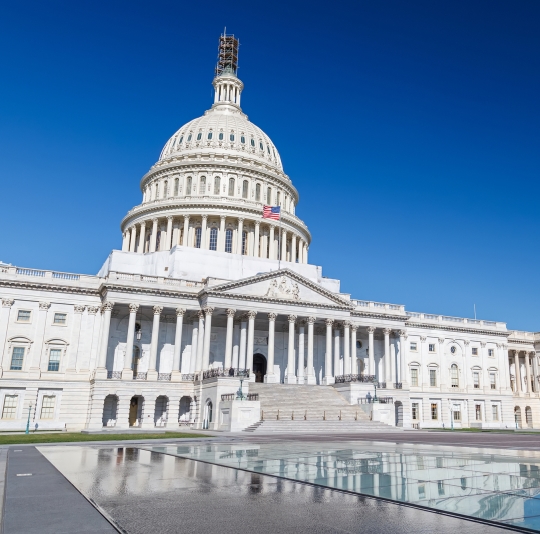In the News
Rep. Wexton Discusses COVID-19 Vaccine Research and Development with Leading Scientists
LOUDOUN TIMES MIRROR,
March 27, 2020
LOUDOUN TIMES MIRROR: Rep. Wexton Discusses COVID-19 Vaccine Research and Development with Leading Scientists
By Nathaniel Cline The Coronavirus Aid, Relief, and Economic Security (CARES) Act is headed to the president's to be signed after passing both congressional chambers. On Friday, the House of Representatives passed the $2.2 trillion legislative stimulus package to provide direct relief to workers and businesses impacted by the COVID-19 pandemic. The bipartisan legislation directs funds to public health care systems, provides money to families and small businesses and will boost the nationwide pandemic response, according to congressional officials. Key provisions of the CARES Act include reworked unemployment insurance, direct cash assistance for workers, billions in lending and grant programs designed to help small businesses and municipalities weather the crisis and accountability measures meant to prohibit federal funding from being spent on stock buybacks or bonuses for corporate executives, according to congressional officials. Specifics of the deal, according to the Associated Press, include: -Sending a one-time payment directly to most American adults and U.S. residents with Social Security numbers. That amounts to $1,200 for single adults earning up to $75,000 a year and $2,400 for married couples earning up to $150,000, plus $500 per child. Someone filing as head of household would get the full payment if they earn $112,500 or less. The payment is reduced by $5 for each $100 that a taxpayer’s income exceeds those thresholds, and is completely phased-out for single filers with incomes exceeding $99,000, $146,500 for head of household filers with one child, and $198,000 for joint filers with no children. -Working to replace the earnings of unemployed workers for four months, providing them with their state’s unemployment benefits plus an extra $600 a week. For the first time, gig economy workers such as Uber drivers can claim unemployment benefits. -$50 billion in tax credits for businesses that keep employees on payroll and will cover 50% of those workers’ paychecks. Companies can also defer payment of the 6.2% Social Security tax, giving them an incentive to put off layoffs at a time when ordinary business has come to a halt. -$454 billion in seed money that will allow the Federal Reserve to make roughly $4.5 trillion in loans to larger industries. Included in the package is local Congresswoman Jennifer Wexton’s (D) Retirement Protection Act aimed at safeguarding Americans’ retirement savings from the financial crisis brought on by the COVID-19 pandemic. “The economic fallout of this pandemic has taken a devastating toll on the retirement savings of millions across America,” Wexton said in a prepared statement. “The provisions that I fought for will suspend the required minimum distribution, allowing retirees to leave their money in tax-deferred accounts without facing a penalty and give time for the markets to recover." The CARES Act includes a provision to suspend for the current year the required minimum distribution (RMD) for defined contribution retirement plans, including 401(k)s, TSPs, and Individual Retirement Accounts (IRAs), according to Wexton’s office. Suspending the RMD means that individuals 72 years and older with these plans will no longer be forced to withdraw a percentage of their tax-deferred retirement plan or face a penalty of 50% of the amount that should have been distributed. Sen. Tim Kaine (D-Va.) tweeted after the Senate vote, “I'm proud that Democrats pushed to get today's relief bill to a strong place—it's a big step in addressing this crisis—but we also know it won't cover everything. We're ready to keep working to tackle additional problems and provide more support for American workers and families." Speaking broadly about the stimulus legislation, Senate Majority Leader Mitch McConnell (R-Kentucky) said, "It will inject trillions of dollars of cash into the economy as fast as possible to help American workers, families, small businesses and industries make it through this disruption and emerge on the other side ready to soar." |



